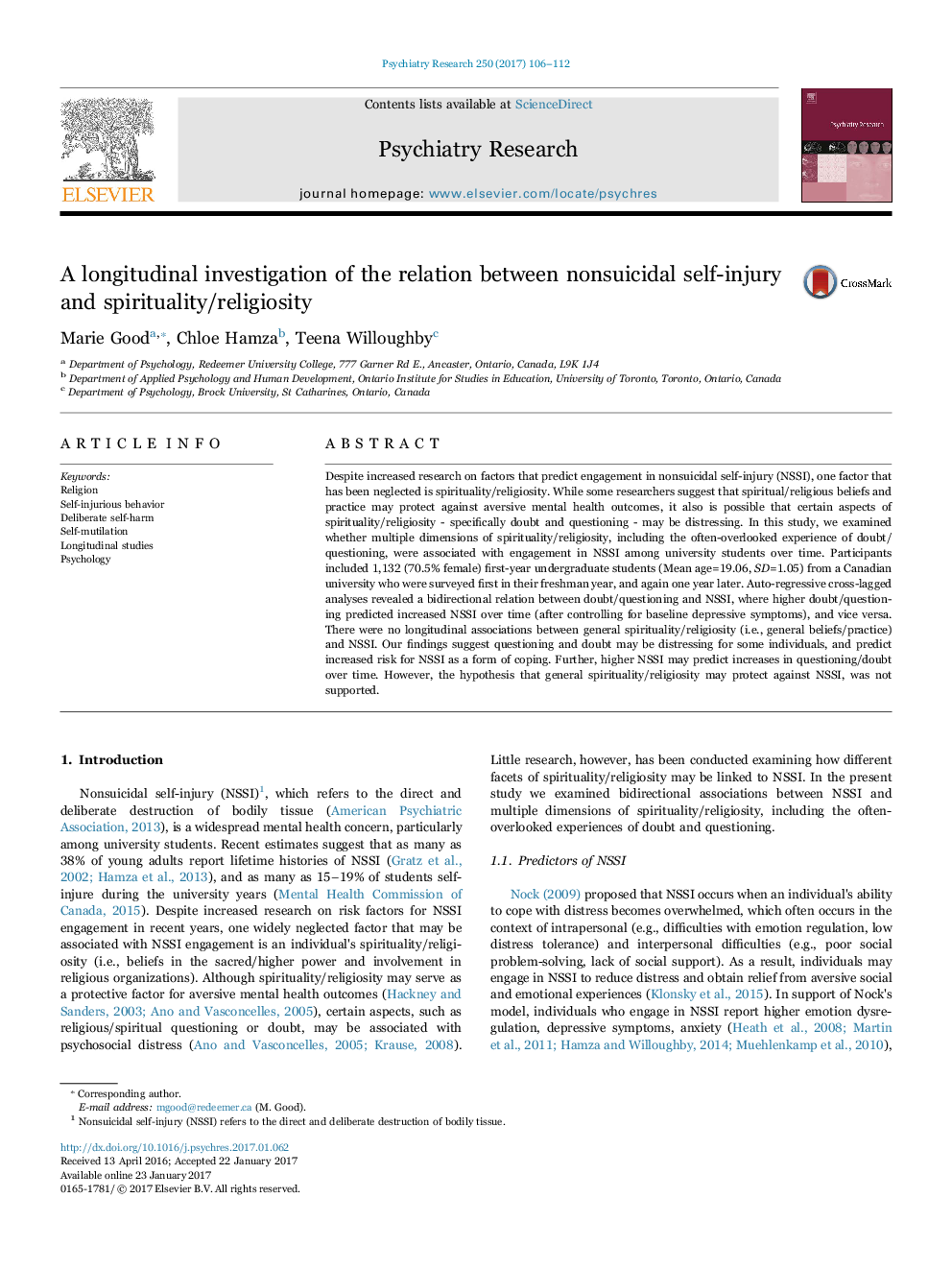ترجمه فارسی عنوان مقاله
یک بررسی طولی رابطه بین خود آسیب ناسازگی و معنویت / مذهبی بودن
عنوان انگلیسی
A longitudinal investigation of the relation between nonsuicidal self-injury and spirituality/religiosity
| کد مقاله | سال انتشار | تعداد صفحات مقاله انگلیسی |
|---|---|---|
| 156209 | 2017 | 7 صفحه PDF |
منبع

Publisher : Elsevier - Science Direct (الزویر - ساینس دایرکت)
Journal : Psychiatry Research, Volume 250, April 2017, Pages 106-112
ترجمه کلمات کلیدی
دین، رفتار خودخواهانه، خودخواهانه عمدی، خودکشی، مطالعات طولی، روانشناسی،
کلمات کلیدی انگلیسی
Religion; Self-injurious behavior; Deliberate self-harm; Self-mutilation; Longitudinal studies; Psychology;

